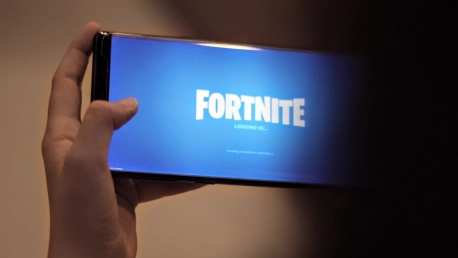The Epic Games v. Apple trial will determine whether Apple is destroying its competition after Epic Games accused Apple of antitrust behavior. At the heart of the issue are not only the practices around Apple’s App Store and its payment system, but also the future of Epic Games Inc.’s “Fortnite,” a video game with hundreds of millions of fans. While Apple needs to demonstrate in court that iOS allows competition, Epic Games is attempting to show just the opposite: that Apple’s software is, in fact, a monopoly, and, even more, that it can be used to hurt users by providing them with products at inflated prices.
While this serious battle is far from over, the trial has already gone into the realm of showbiz and entertainment. This doesn’t mean, however, that its outcome will be of little or no consequence for the future of software. Even if Apple wins, it’s hard to see such a win as little more than a Pyrrhic victory. No matter the outcome, Apple’s App Store will probably remain in the public eye for months, with lawmakers and developers alike ready to voice new concerns.
When Did the Problems First Start?
Epic Games’ co-founder Tim Sweeney has been known to criticize Valve’s Steam, Apple’s App Store, and Google Play, over the platforms’ insistence on taking a 30% revenue cut from the apps they host. “We have to acknowledge this as a market failure. Most of the money made goes to middlemen: app stores, social networks. This is broken,” Sweeney said back in 2017. After the statement, Epic Games went on to create its own virtual store as a way of demonstrating it could operate while being more generous with creators. However, this proved to be not the end of the problem, but rather its beginning.
In 2020, Epic Games went on to join Match Group, known for its dating app Tinder, in criticizing Apple over longstanding App Store policies, including its 30% revenue cut of digital purchases. Software makers around the world started to voice concern that Apple could use data about what is trending on its App Store to develop competing Apple apps or features. Moreover, Apple’s features and apps may have access to core parts of iOS that third party developers don’t. As a result, European and U.S. officials started to investigate whether Apple’s management of its App Store could have a negative impact on free market competition.
Epic Games v. Apple – Trial or Tribulation?
According to The Washington Post, Epic Games v. Apple may be ultimately resolved not in court, but in the public eye. The trial has indeed sparked multiple online debates, ranging from the key topic of antitrust merits to other apps and platforms like Tinder, itch.io, and even a naked banana. It was Apple who actually mentioned Peely, a humanoid banana character from “Fortnite,” as a way of defending the argument of carefully curating its App Store and keeping out inappropriate content. However, Epic Games went on to declare the character “is just a banana.”
The naked banana could have remained an anecdote, in an otherwise serious trial, but it happened to follow another somewhat related subject. Apple’s attorney had previously mentioned Itch.io, an indie game platform that is allowed on the Epic Games Store. The representative mentioned the fact that Itch.io develops adult games, and went on to describe them as “offensive and sexualized.” Although both Epic Games and Itch.io promptly reacted to the critiques, with the latter going as far as jokingly suggesting that “Games Are Now ILLEGAL,” this seemed to enhance the idea of Epic Games v. Apple being a struggle for good public perception more than anything.
Apple has struggled to show that Epic Games had prepared a public-relations campaign on the subject years ago, with the sole purpose of promoting themselves and their products. The California-based company went as far as to upload documents featuring Epic Games internal discussions as evidence. But, despite Apple’s efforts and even the potential victory in a trial, one thing remains certain: Apple’s own public image has been tarnished. However entertaining when it comes to anecdotes, online debates, and memes, this trial may very well prove to be a first step in changing not only antitrust behavior, but also, by extension, the future of software as we know it.









